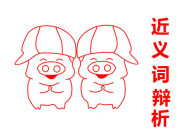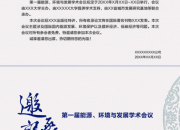高中英语语法词语辨析
时间:2021-08-31高中英语语法词语辨析
高中英语语法-词语辨析(一)
able / capable
able和capable均用于谈及某人能够做某事。
若说someone is able to do something意为某人能做某事,因为有知识或技能,或具备做该事的条件。
Breslow wondered if he could be able to climb over the rail. 布雷斯洛不知道是否能爬过栏杆。
They must be able to use their profiles for new investment. 他们必须能把利润用于新的投资。
注意,过去时表明某人实际上已经做了某事。
We were able to reduce costs. 我们能够降低成本。
若说someone is capable of doing something 指某人如有需要的话,是具有做某事的知识或技能的,或指他有可能会做某事。
Workers are perfectly capable of running the organizations which employ them. 工人完全有能力经营受雇的机构。
She was quite capable of dropping off to sleep. 她往往会不知不觉入睡。
也可说to be capable of a feeling or an action,意为具有某种感情,或会做得出某事的。
I think he's capable of loyalty and seriousness. 我想他会忠诚,认真。
Bowman could not not believe him capable of murder. 鲍曼不相信他会杀人。
在谈及汽车或机器等的性能时,通常用capable of。
... water turbines, which are capable of producing more economical electricity. ……能降低发电成本的水动涡轮机。
The car was capable of 110 miles per hour. 这车每小时能跑一百一十英里。
若把某人描述为able或capable,其意为某人聪明能干。两词用作这一意义时,基本相同。
... the able and methodical King Charles V of France. ……能干、有条理的法国国王查理五世。
This very able man totally failed to see the possibilities of the telephone. 这位非常能干的人根本没看到电话的潜在价值。
Newborn babies are more capable than was once thought. 新生婴儿的能力比以前人们想象的要强得多。
Well, you certainly have a capable gardener there. 哟,你的园丁一定能干。
高中英语语法-高中英语语法重点难点回顾之三
高中英语语法重点难点回顾之三
little,no,some, 等修饰。
I have read all the book (that) you gave me.
4)先行词被 the only, the very, the same, the last 修饰时。
He is the only person that I want to talk to.
5)先行词既有人又有物时。They talked of things and persons that they remembered in the school.
先行词是表示地点时,要根据从句的谓语动词是及物的还是不及物的。如果是及物的就用that(which),否则用where。
This is the house where he lived last year.
This is the house that (which) he visited last year.
用no sooner…than和hardly…when引导的从句表示“刚……就……”。主句中的动词一般用过去完成时,从句用过去时;而且主句一般倒装,把助动词had提到前面。例如:Hardly had I entered the room when I heard a loud noise.
代词作主语时,主谓语序不变。Here it is. Here he comes.
当句首状语为表示地点的介词词组时也常常引起全部倒装。
South of the city lies a big steel factory.
From the valley came a frightening sound.
表语置于句首时,倒装结构为“表语+连系动词+主语”。
Present at the meeting were Professor White,Professor Smith and many other guests.
Gone are the days when they could do what they liked to the Chinese people.
Among the goods are Christmas trees, flowers, candles and toys.
He has been to Beijing. So have I.
Li Wei can’t answer the question. Neither can I.
部分倒装
用于省略if的虚拟条件状语从句。Had you reviewed your lessons,you might have passed the examination.
3.用于“形容词(或名词、动词)+as(though)引导的让步状语从句中。例如:Pretty as she is ,she is not clever.
Try as he would, he might fail again.
如果从句的表语是名词,其名词前不加任何冠词。
Child as he was, he had to make a living.
用于no sooner…than…,hardly…when和not until的句型中。Not until the teacher came did he finish his homework.
用于never,hardly,seldom,scarcely, barely, little,often,at no time,not only,not once等词开头的句子。
Never shall I do this again.
Little did he know who the woman was.
6.用于以only开头的句子(only修饰副词,介词短语或状语从句时)。Only this afternoon did I finish the novel.
Only in this way can you master English.
Only when he told me did I realize what trouble he was in.
如果only后面的词组不是状语,则不用倒装。
Only Wang Ling knows this.
用于某些表示祝愿的句子。May you succeed!祝你成功!
stomach-stomachs,a German-three Germans,
an American-two Americans,man cook - men cooks;
papers 报纸, 文件 manners礼貌 drinks饮料
in a word 简言之?in other words 换句话说
have words with 与某人吵嘴
have a few words (a word) with sb.与某人说几句话
The crowd were running for their lives.
某些集体名词, 如people, police, cattle等, 只当复数看待, 谓语动词必须用复数。The police are searching for him.
高中英语语法-高中英语语法重点难点回顾之二
d that she (should) stay in bed for a few days.
He demanded that we (should) start right away.
作advice,idea,order,demand,plan,proposal,suggestion,request等名词的表语从句和同位语从句,其谓语动词要用虚拟语气的结构“(should)+动词原形”。例如:We all agreed to his suggestion that we(should) go to Beijing for sightseeing.
My idea is that we (should) do exercises first.
在feel, hear, notice, observe, see, watch, have, let, make等词后的补足语中,不定式不带to。但是这些句子如果变成被动结构时,就必须带to。例如:I often hear him sing the song.
He is often heard to sing the song.
注意:不定式动词在介词but, except, besides后面时,如果这些介词之前有行为动词do的各种形式,那么,这些介词后的不定式不带to,否则要带to.如:
She could do nothing but cry.
What do you like to do besides swim?











